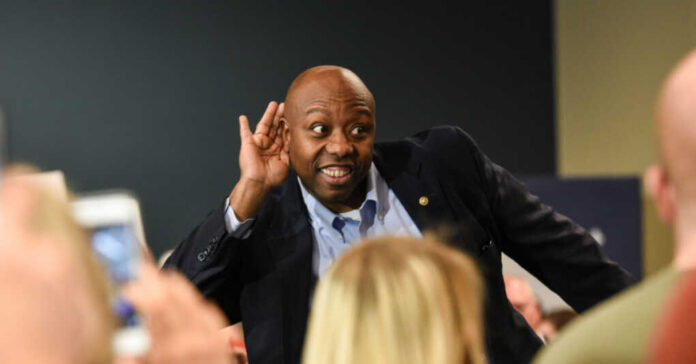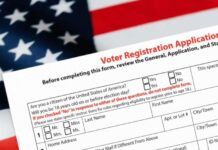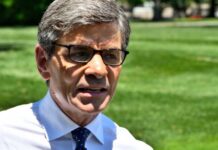
Things are looking dismal for lower-tier GOP presidential candidates, especially the scrappy Senator Tim Scott (R-SC). With polling numbers hovering at 2%, it may be time for Scott to hang it up.
His own Super PAC agrees, causing a stir by canceling a $40 million ad buy and raising doubts about the viability of his campaign. The move is explained as a decision not to waste money when the public isn’t ready for an alternative to Trump. The funds will be redirected to grassroots and door-knocking efforts, A TIMPAC spokesman mentions that they already have an active grassroots operation, which began in June, and this funding will provide additional support.
To outward appearances, even TIMPAC thinks Scott shouldn’t give up his day job.
Scott’s low polling numbers are problematic for several reasons. The first, of course, is that it shows a failure to connect with potential GOP voters, along with a notable lack of name recognition. The second issue at hand is that without at least a 4% in polling, Scott will not qualify for the third GOP debate, scheduled for November 8 in Miami, Florida. Not joining his rivals on the debate stage will significantly add to his first problem.
The field will most likely be narrowed significantly by the time the candidates take the stage in November. Former Vice President Mike Pence is polling at 3.8%, former New Jersey Gov. Chris Christie stands at 2.8%, Gov. Doug Burgum (R-ND) holds a dismal 0.8%, and former Arkansas Gov. Asa Hutchinson, who failed to qualify for the second debate, has an abysmal rating of 0.6%. For these candidates, including Scott, nothing short of a miracle will qualify them for the third debate in just a few short weeks.
Trump is advocating for the cancellation of all remaining debates, a brash assumption that he’s secured the nomination. And with his continued dominance in the race, his opponents are facing an uphill battle, beginning in Iowa.
Recently, Trump gained a significant endorsement in Iowa from Attorney General Brenna Bird, a move that broke from the tradition of higher-ranking Iowa politicians remaining neutral in presidential races. While political strategists acknowledge the competitiveness of the Iowa caucuses, it’s important to note that Trump didn’t secure victory there in 2016 but still went on to win the presidency.
TIMPAC’s halt on Scott’s $40 million ad campaign signals a bigger problem among the GOP candidates, who are losing confidence in Iowa’s prospects. TIMPAC leaders explained that the challenge of drawing Republicans away from Trump’s influence played a significant role in this decision, hinting at new strategies among some candidates.
Several candidates are shifting their focus to other key battleground states like Nevada. Pence, Haley, and Scott have opted to compete in Nevada’s primary on Feb. 6 rather than the state’s caucuses on Feb. 8. This decision, while forgoing delegate awards, could provide them with valuable media coverage and a potential boost in polling, particularly in states like New Hampshire and South Carolina, where such exposure can be more beneficial than the number of delegates obtained in Nevada.
TIMPAC’s spokesman observed that candidates in the “Never Trump” corner will be wasting money playing catch up to the frontrunner. Scott’s PAC said that the cancellation of the ads isn’t a retreat, and it isn’t a sign that Scott’s time in the spotlight has come to an end.
Scott’s campaign remains hopeful, emphasizing that they are looking ahead and past Iowa. Scott officially entered the 2024 South Carolina presidential primary, which is the third state on the primary calendar, and maintains that he has strong financial support and popularity among voters to carry him over the finish line.
Rutgers University professor David Greenberg believes it’s premature to make definitive conclusions, He believes that staying in the race is a priority for candidates, but if the primary goal is stopping Trump, efforts should be made to narrow the field for a more effective challenge.
But Kevin Madden, a senior adviser to Senator Mitt Romney’s 2012 presidential campaign, observes that the crowded field of Trump alternatives leaves little room for success. Madden emphasizes that a significant consolidation of support for one such candidate must occur, ideally before or around the Iowa and New Hampshire contests, if there’s any hope of derailing Trump’s momentum.
Scott is an optimistic, smart, and common-sense candidate who seems far too polite for the verbal battles on the debate stage. Still, the future of the struggling lower-tier candidates is uncertain, but anything can, and often does, happen in the blink of an eye in politics. Just ask the once-rising star of the arena, DeSantis, whose victory is now anything but assured.










